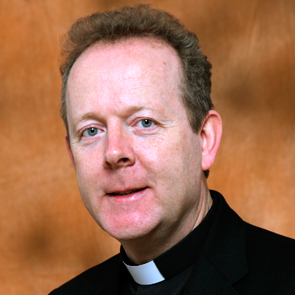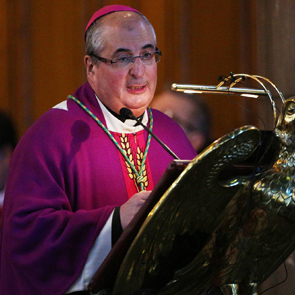The Archbishop of Glasgow, Philip Tartaglia, has apologised to abuse victims on behalf of the Scottish Church after a review criticised its safeguarding procedures.
The McLellan Report, the result of a landmark enquiry into safeguarding in Scotland, said the Church lacked consistency and transparency in its handling of historic allegations of abuse.
Responding to the report, which has been likened to the Nolan Review of child protection in the Church in England, Archbishop Tartaglia, president of the Bishops' Conference of Scotland, offered "a profound apology" to the victims, saying that "child abuse is a horrific crime; that this abuse should have been carried out within the Church, by priests and religious, takes that abuse to another level. Such actions are inexcusable and intolerable". Continuing his homily at St Andrew's Cathedral in Glasgow on Tuesday, Archbishop Tartaglia said that while the effects of abuse could be most obviously and strongly measured on the victims, they extended throughout the Church and into wider society.
Bishop Joseph Toal of Motherwell, who supervises safeguarding for the Church in Scotland, said that the Church accepted fully the findings of the McLellan report and that clergy and lay faithful would be committed to ongoing training and development to improve safeguarding standards. His comments were echoed by the Church's safeguarding co-ordinator in Scotland Mrs Tina Campbell who thanked those currently involved in safeguarding at a local level, as practitioners and trainers, acknowledging that their work "represents a huge commitment to ensuring the safety and welfare of everyone in the Church".
The 99-page report, the findings of a critical review of safeguarding policy established in 2014, concluded that support for survivors of abuse must be the Church’s absolute priority, and said that it had not been so in the past.
It condemned a culture of secrecy and cover-up that allowed abuse to remain hidden, and said that in seeking to avoid scandal, the Church had caused “scandal in a theological sense” to victims and to the wider Catholic population.
“There is lost ground to be made up,” it said, adding that Mass attendance had declined because of Scottish Catholics’ shame about the Church’s response to abuse.
The Commission, led by Dr Andrew McLellan CBE, former Moderator of the General Assembly of the Church of Scotland and former Chief Inspector of Prisons for Scotland, also found that the Church’s default position had been to protect priests and the institution before seeking to meet the needs of victims.
It acknowledged the hard work of many within the Church to improve safeguarding, and noted that it had promised to change, particularly following the resignation of Cardinal Keith O’Brien after allegations of sexual misconduct were made against him by former seminarians.
But the Commission said that the Church in Scotland “has not made significant structural changes” in terms of embedding safeguarding in ministry and theology.
It also criticised the “complications of church administration” that hampered the Church’s efforts to deal consistently with abuse allegations, in particular the different authority structures that separated the bishops and Religious congregations.
This was particularly evident around historic allegations of abuse that arose from Fort Augustus, a Benedictine-run boarding school in Inverness-shire which is now closed.
The report warned: “That separation is not evident to those who have suffered: they feel that they have suffered at the hands of ‘the Church’. Consistency of approach between different authority structures must be enforced.”
It called for the Bishops’ Conference of Scotland to be given clear authority to lay down policies and procedures around abuse “which must be followed to the letter in every diocese.”
It also called on the bishops to make a public apology to all abuse survivors taking responsibility for what they had suffered within the Church.
The document made eight recommendations in total, which also included a complete revision of the current policy and practice manual “Awareness and Safety in our Catholic Communities”. While the Commission said there was good material in that document, it called for more to be said about the role of bishops.
It also called for external scrutiny and independence and continuous professional development.
Above: Archbishop Tartaglia




 Loading ...
Loading ...